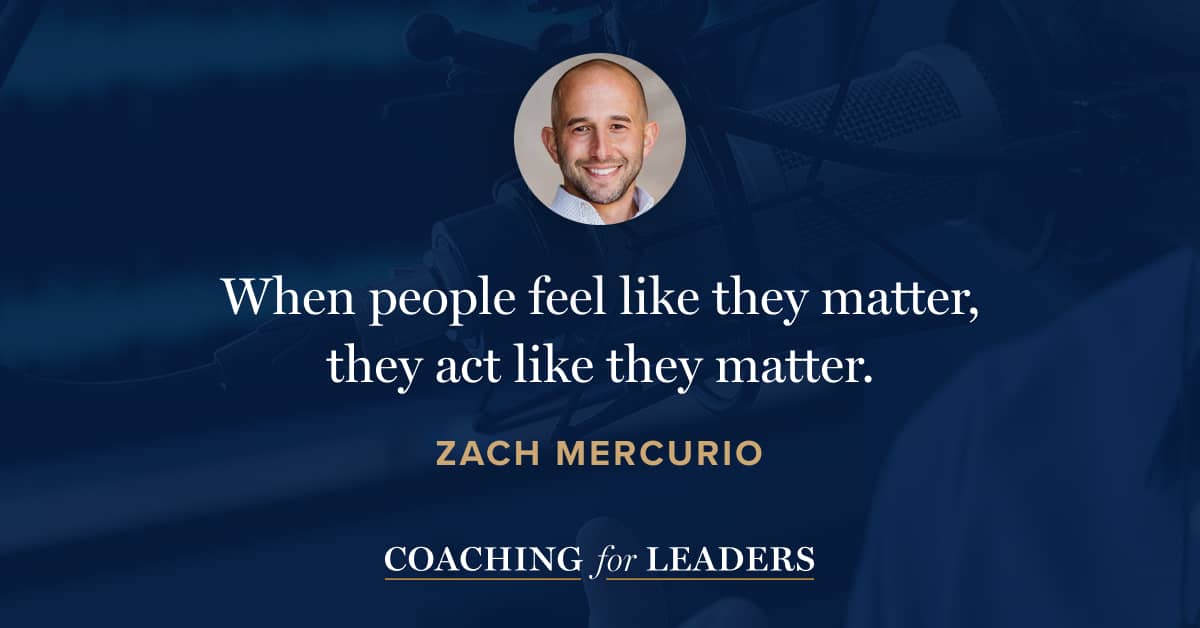Zach Mercurio: The Power of Mattering
Zach Mercurio is an author, researcher, and speaker specializing in purposeful leadership, mattering, meaningful work, and positive organizational psychology. He teaches a course with past guest Simon Sinek on how leaders can show everyone how they matter. He is the author of The Power of Mattering: How Leaders Can Create a Culture of Significance*.
When you ask people what mattered in their careers, few cite the bonus, or the stock options, or the employee of the month award. What they do talk about are the times they were remembered, supported, thanked, and seen. In this conversation, Zach and I discuss how to do that better.
Key Points
- When people are asked about when they mattered, they recall small moments of being remembered, helped, thanked, or seen.
- The behavior of a leader accounts for half of the increased feelings of mattering and meaningfulness at work.
- Rather than identifying with a person’s behavior, identify first with the person.
- Look for the positive traits in a person or identify something that you love.
- Music is the space between the notes. In our informal interactions, we have the choice to turn against, turn away, or turn towards.
- Leaders who notice people well consistently follow three steps: observe, note, and share.
Resources Mentioned
- The Power of Mattering: How Leaders Can Create a Culture of Significance* by Zach Mercurio
Interview Notes
Download my interview notes in PDF format (free membership required).
Related Episodes
- Start With Why, with Simon Sinek (episode 223)
- How to Shift Behavior for Better Results, with Mitch Warner (episode 690)
- How to Bring Out the Best in People, with Donna Hicks (episode 724)
Expert Partner
Are you noticing people communicating in such a way that feels boring or robotic to stakeholders – or perhaps just losing them in the data? David Hutchens, one of our expert partners, helps leaders and organizations develop a more human, engaging voice through the power of storytelling.
To discover more about how his work may support your organization, get in touch on our expert partners page.
Discover More
Activate your free membership for full access to the entire library of interviews since 2011, searchable by topic. To accelerate your learning, uncover more inside Coaching for Leaders Plus.





